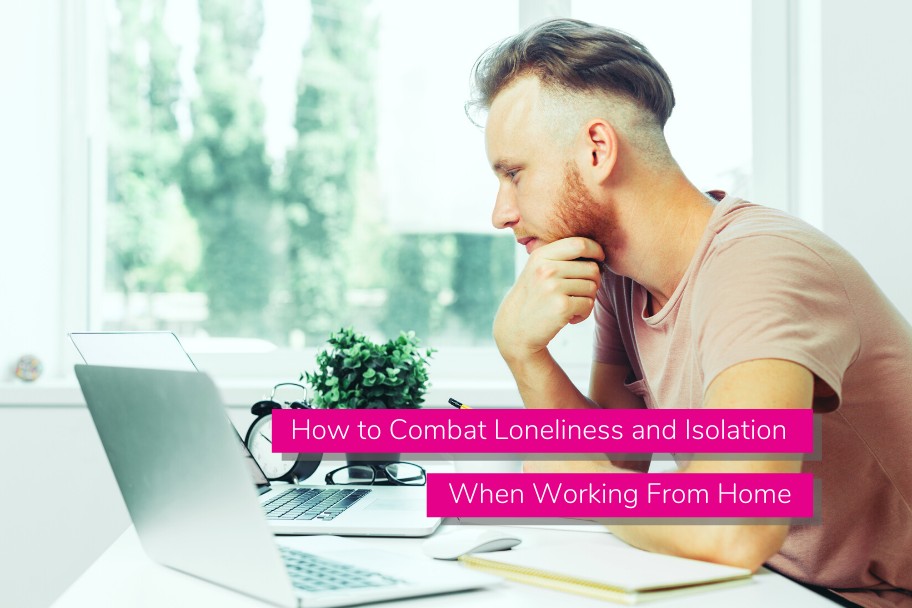Over 60% of workers are facing challenges of loneliness, disruption to their routine, and/or lack of motivation as a result of the COVID-19 outbreak. This (unsurprising) new data was released by employee engagement company Emplify, who surveyed 1,000 US workers to identify the impact coronavirus has had on their workplace wellbeing.
The pandemic is having a major effect on how lots of people are working, with many businesses shutting their office doors and making home working mandatory to adhere to social distancing measures and protect their staff.
For some people, working from home is part of their job already. For many more, however, remote working is uncharted territory. Whichever camp you may fall into, working from home during these turbulent times is shown to stir up feelings of isolation, loneliness, and even panic, as we try to navigate our way into what will likely become the “new normal”.
So whether you’re a seasoned remote worker or a complete newbie, here’s what you need to do to combat loneliness, be productive, and stay connected:
Formulate a morning (and evening) routine
If you’ve never worked from home before, a good first step is to treat your day exactly as you would if you were going into the office. Get up at the same time every day, take a shower, get dressed, eat breakfast, then start work.

Following a daily routine like this, rather than sleeping in and working in your pyjamas, will kick-start your brain into “work mode” and help you to focus. Once you have an established routine, you can start to unlock the benefits that home working (in usual circumstances) brings. A survey of 7,000 workers by FlexJobs, for example, found that 65% were more productive as a result of working from home, thanks to reduced stress from commuting, fewer interruptions from coworkers, and fewer distractions.
Keeping your mornings as similar as possible to your “usual” office days can also help you feel a sense of continuity, calm, and control during a time when there is a lot of uncertainty. Focusing on what you can do – rather than on what you can’t – can help ease feelings of anxiety.
It’s important to formulate an “end of work” routine as well. For most people, finishing work involves physically leaving the office, but for home workers, the lines between work and leisure time are often blurred. Mental cues, such as switching off your laptop and storing it away, or a quick walk around the block, can signal the end of the working day and the beginning of your own time.
Constantly communicate with your coworkers
Socialising with your coworkers is a big part of office life, but with social distancing and self-isolation measures in place, doing so in person is a no-go.
Thankfully, the technology is there to facilitate communication and enable home workers to socialise in the digital ether. Video conferencing especially is a great way to strengthen staff bonds and create a virtual company culture. Team standups, client meetings, and company-wide presentations can all be hosted over video calls. The more face-to-face time you can have, the better.

Message-based tools, such as internal social media and direct messaging, are ideal for staying connected throughout the day. You can dip in and out of discussions and share ideas on your intranet social feeds, helping to spark innovation and creativity. Direct messaging allows you to have one-to-one, private conversations with your manager or co-workers. This gives staff a safe space to share any concerns or worries, and also reach out to others to offer support.
Check in with staff and schedule socials
Sometimes the simplest things are the most effective. Saying “Hello” to your coworkers every morning on internal social media or instant messaging, can encourage conversations and help combat feelings of loneliness.
Freelancer wellbeing network, Leapers, recommends the simple act of asking “how are you?” to your coworkers. Doing so gives people the opportunity to share their feelings, and to be listened to – both vital for fighting isolation and low mood.
Don’t forget to schedule time for fun too. Company socials that would usually be face-to-face, such as beer Fridays or extended coffee breaks, can be hosted digitally over video. Translating in-office events into online activities will help staff feel less isolated and boost morale, as well as create a sense of normality. You just need to get a little creative in how you make it work!

We use video conferencing at Claromentis to host virtual “Beer Fridays”




